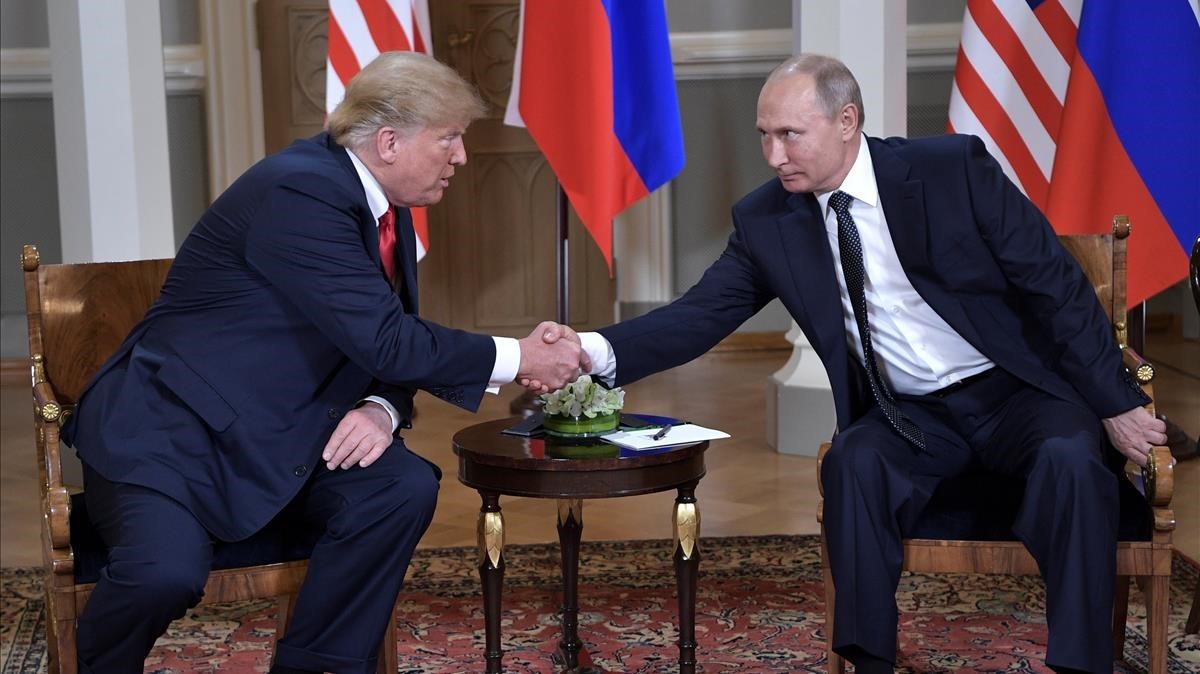
The collaboration both countries are talking about only seems to materialize as animosity toward the EU.
Under normal conditions, listening to the presidents of the United States and Russia after a long bilateral summit as they talk about dialogue, cooperation and finding a solution to the issues between the two world powers through negotiation should be considered good news. That a Russian leader claims the Cold War is over and that an American president talks about “shared interests” should be seen as promising. But when it comes to Donald Trump and Vladimir Putin – in the shadow of the Russian meddling into the election campaign which ended up with the business tycoon’s victory – these kinds of claims are thus surrounded by suspicion and met with needed optimism and concern.
The summit took place behind closed doors, in the presence only of translators, without aides or note-takers to record what the two leaders actually said. Trump arrived there following a week in which he blew up his relationship with his European allies (“The European Union is a foe”), hoping to appear to Putin as the ally – the only ally – the Kremlin’s czar needs. The question is, in exchange for what? Before the summit, Trump blamed Barack Obama and the investigation into Russian interference in the presidential election for the poor relations with Moscow. During the press conference, he refused to answer questions about whether he believed his intelligence agencies or Putin in the wake of Special Counsel Robert Mueller’s indictment of 12 Russian intelligence officers. In this regard, the fact that Putin admitted to the international press that he wanted Trump to win the presidential election has a very worrisome effect. If we try to step back and examine the facts, we find ourselves facing a U.S. president who blows up economic, political and security relations with his Western allies, and only has kind words for the leader of Russia, a country accused by U.S. legal and intelligence agencies of meddling in order for such a president to reach the White House.
There was no practical sign between the two countries of any willingness to cooperate. Nor was there any concerning Crimea, Iran, Syria or nuclear disarmament. There has been no thaw in this Cold War between Washington and Moscow which, according to Putin, does not exist. They did not mention it, but there does seem to be a consensus regarding the EU as the enemy to beat.

Leave a Reply
You must be logged in to post a comment.